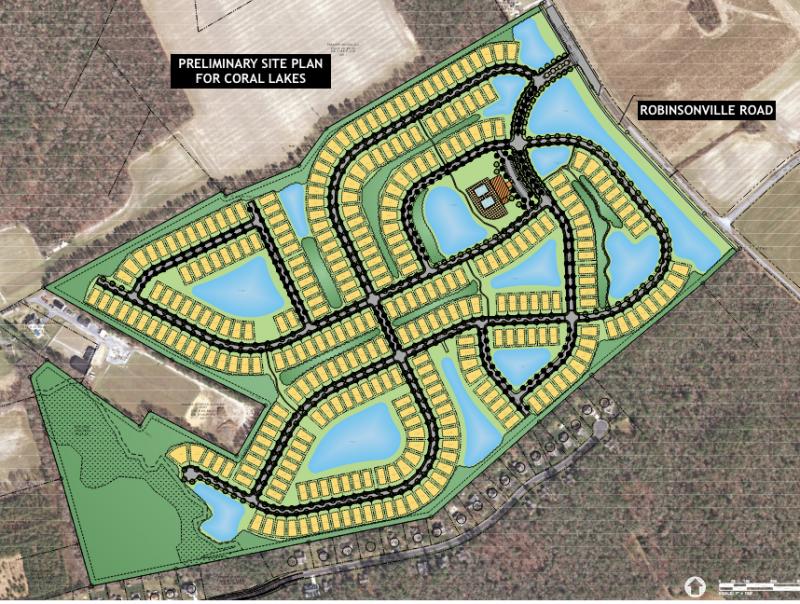In a rare move, with a 4-1 vote at its March 10 meeting, Sussex County Planning and Zoning Commission denied an application for the proposed Coral Lakes subdivision.
Commissioners Kim Hoey Stevenson, Holly Wingate, Keller Hopkins and Bruce Mears voted against the application. Commission Chairman Bob Wheatley cast the lone affirmative vote. Commissioners did not cite any reasons for voting against the application.
The applicant, Schell Brothers, has 30 days to appeal the decision to Sussex County Council.
The action came after a motion for preliminary approval presented by Hoey Stevenson and an explanation of the subdivision approval process by assistant county attorney Vince Robertson.
The 315-lot subdivision, proposed for a 152-acre parcel along Robinsonville Road near Lewes, was met with opposition from nearby residents who expressed concerns over the loss of approximately 110 acres of woods and displacement of wildlife, increased traffic along a road with three other nearby approved subdivisions, stormwater runoff from the parcel, and potential impact on wetlands.
Prior to the vote, Hoey Stevenson read a detailed motion in support of the application. Included in her motion was a denial of the 11 bonus density lots proposed to be purchased by the developer. She said it was illogical to approve building lots that required the removal of forested areas and receive money to preserve open space elsewhere. “Elimination of the 11 lots would preserve more woodlands within this subdivision,” she said.
Her motion included many of the standard conditions for subdivisions, including construction hours, when amenities had to be completed and required buffer widths. She also noted that the developer had complied with the county's superior-design elements for cluster subdivisions. “The project complies with the zoning code,” she said.
After her motion, Robertson said he had discussed with the commission the legal standards that apply to subdivisions. He said the subdivision is a permitted use by law as long as it meets all requirements of the zoning and subdivision code. “We can condition it on certain aspects, but that also has to be based on the record,” he said. “When the commission acts on subdivisions, it's simply following the law. I realize that puts these five commissioners in a bind sometimes because they are stuck within the guardrails of what the law says.”
In AR-1 agricultural-residential zoning districts, property owners are allowed a density of two units per acre by right.
“If it's a subdivision that is being applied for in an AR-1 zoning district, you look at the rules in AR-1, and if the subdivision complies with it subject to conditions, then we move forward. But if there is a change from AR-1 to MR, GR or some other zoning classification, the commission does have a lot more discretion,” he said.
“That's not to say that it's a rubber stamp on these subdivisions. I don't want to give that incorrect impression,” Robertson said. “It's incumbent upon the applicant and opposition to make a good record if there is an appeal that it would hold up on the appeal.”
Robertson concluded by saying, “The commission can't make a decision based on opinion. It has be based on the record and and how that record is applied to the law.”
















































